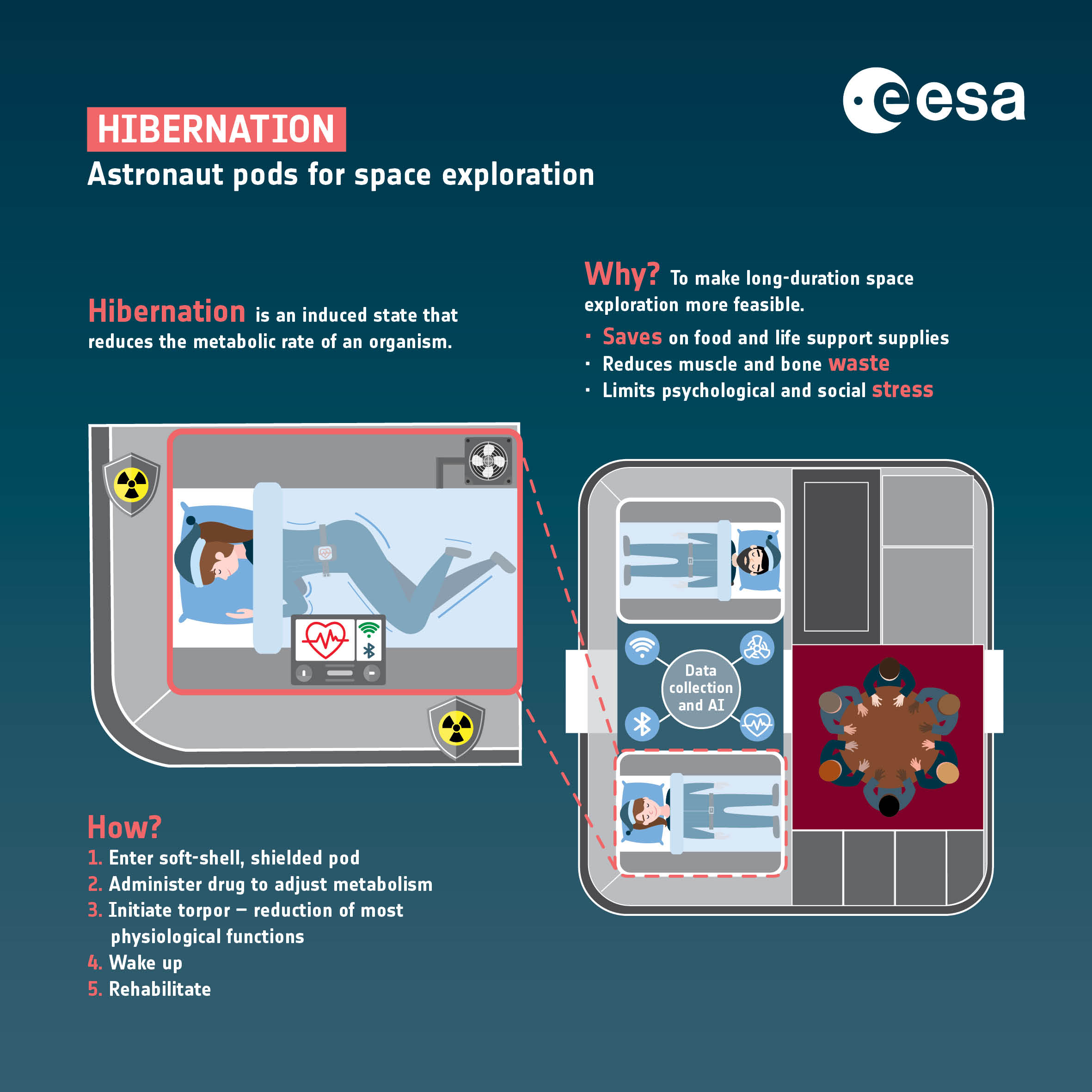Comfortable Mars travel by hibernation?
Imagine that you are first fed well for two weeks. Cakes, steaks, whatever you like – until you have gained at least ten kilograms. After that, you go to sleep. Your body temperature is lowered, and with it your basal metabolic rate. You slumber in your cool cave, surrounded on all sides by water containers, like a bear, until you are awakened again after three months. You have lost the excess weight. But you have also lost hardly any muscle mass, unlike if you had been forced to lie down for three months, because hibernation preserves your muscles. Now, three more weeks of rehab to compensate for the small losses, and you’ll be fit for your research mission on Mars.
That’s how a Mars flight could go in the future, if the ideas of ESA researchers who present the process in a technical article have their way. But it’s not just about a comfortable journey. Reducing a crew’s metabolism on the way to Mars to a quarter of normal would significantly reduce the amount of supplies to be transported and the size of living space. But it would also reduce crew stress. “Where there’s life, there’s stress,” explains Jennifer Ngo-Anh, ESA research and payload coordinator for human and robotic exploration and one of the paper’s authors. “The strategy would minimize boredom, loneliness and aggression associated with confinement in a spacecraft.”
But the idea is not cryosleep, which is more common in science fiction, where all the cells in the body are frozen at the same time. Whether such a thing can ever be implemented is questionable. However, the hibernation that the researchers are referring to is successfully implemented by nature in numerous species, including mammals. It is based on a cold-induced reduction in metabolism. Bears seem to be the best model for human hibernation in space. They have a similar body mass to us and lower their body temperature by only a few degrees – a limit that is considered safe for humans. Like bears, astronauts should put on extra body fat before going into hibernation. During hibernation, bears spend six months fasting and immobile in their dens. Yet they remain fit. “Research shows that bears leave their dens healthy in the spring and lose only a small amount of muscle mass. It only takes about 20 days for them to return to normal levels. From this we learn that hibernation prevents muscle and bone loss and protects against tissue damage,” explains Alexander Choukér, professor of medicine at Ludwig Maximilian University in Munich.
In mammals, low testosterone levels seem to favor prolonged hibernation, while estrogens strongly regulate energy metabolism in humans. “The very specific and different balance of hormones in women and men and their role in regulating metabolism suggest that women might be preferred candidates,” Choukér says. The astronauts would spend the trip to Mars in a soft capsule, with little light, cool temperatures below ten degrees Celsius and high humidity. They would move very little, but would not be tethered. Sensors would have to measure posture, temperature and heart rate, and if there were medical problems, the crew member would be awakened. And why the water tanks? They protect the sleeping travelers from cosmic radiation.
Unfortunately, this technology is not suitable for interstellar travel. After all, the metabolism continues to run, and humans age even in hibernation.
